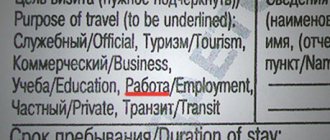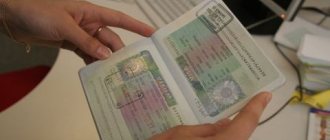Where to begin
If a citizen of Russia or Ukraine has set out to move to Bangkok or Phuket, then he needs to carefully study whether he can maintain the level of expenses from his savings or salary. Thailand is a quite successful country only compared to its poorer neighbors. In general, the income level of local residents is not too high. Therefore, extra burden on the labor market from foreign citizens is not welcome here. In Thailand, there is even a whole list of professions where only local residents can work.
On the other hand, the country's authorities do their best to favor those who come to work in a branch of a foreign company or are planning to open their own business. Although there are limitations here too.
You need to start looking for a job in Thailand by browsing websites where vacancies are posted, or by contacting an agency. If a suitable job is found, it is necessary to conclude a contract and begin preparing documents.
How to look for work in Thailand?
- The main thing: REMEMBER: you are not in Russia! There is a different mentality and views here, even among local Russians, not to mention the Thais.
- Don't expect too much to find an interesting job opportunity using social networks.
- Remember: every company has an E-MAIL. And it's definitely not a secret. This is where you should send letters with a COMPLETE RESUME, and not with the words “I want to work, just anyone.”
- The main thing and the main thing: it is 98% POINTLESS to look for a job in Thailand while being in Russia. Well, unless you are a highly qualified specialist, whom all the top corporations in the world are ready to tear off. In other cases, looking for a job is worthwhile. Still, no one canceled the interview in person.
- Better yet, go around (with your feet) those companies that interest you. Talk, interest and submit your resume. This will increase your chances.
Warning before looking for work in Thailand
When planning employment in Thailand, it is important to realize that this is another country in which people live with a mentality different from the Russian one. In addition, this country has special climatic conditions and its own laws.
For successful employment in Thailand, having all the documents will not be enough. It’s great if the candidate speaks English at least at a conversational level; knowledge of Thai is also welcome.
Practice shows that many of the costs associated with employing foreigners are borne by Thai employers, but when going to Thailand, it is worth stocking up on a small amount of money, which will be enough to cover a month’s food and pay rent.
Popular vacancies
The Thai authorities have made sure that most of the highly paid positions are occupied by citizens of the country. However, certain areas of activity are reserved for foreign workers, including Russians.
Some of these vacancies include:
- English teacher;
- programmers in various languages;
- sales managers;
- cooks;
- diving instructors;
- DJs;
- guides;
- realtors;
- hotel administrator;
- excursion organizer;
- fitness instructor;
- animator;
- developers.
Working as a teacher in Thailand
In Thailand, teachers from Russia work on a 5/2 schedule, teaching 20-24 lessons per week. In a standard class of a simple public school, there are usually about 40-50 children.
For teachers, the employer usually rents housing, pays for a visa and guarantees a decent salary.
To be hired as a teacher, a potential employee must show his diploma of completion of English language courses.
An employer often asks to show him a recording of a lesson given by a candidate - this is how he evaluates the professional skills of a future employee.
Tourism sector
Travel agencies operating in Thailand are in dire need of Russian-speaking employees who would meet arrivals at the airport and accommodate them at the hotel. They pay little - $500-700.
Sellers and consultants
Since this profession is on the “forbidden” list, getting into the trade sector is not only difficult, but also dangerous. Such work can result in a fine and deportation.
Street trading is especially strictly monitored. Thais really don’t want foreigners to take their earnings, so it’s better not to take risks.
Dancers in nightclubs
There are no restrictions for foreigners here. However, girls should be aware that dancers in Thailand in 90% of cases, in addition to dancing, are engaged in prostitution. Very often, recruiters guarantee a lack of sex during employment, but in practice everything turns out differently.
Real estate trade
One of the most common ways for a Russian to make money in Thailand is to sell/rent apartments or houses. Many citizens of Russia and Ukraine are interested in real estate, both for wintering and for permanent residence. Working as a realtor for Russian-speaking clients, you can make very good money.
Trainers and coaches
This profession typically involves helping people learn scuba diving, surfing, or yoga skills. Such work is paid hourly, but, by local standards, very well.
Employment is carried out through an agency or hotel where potential clients from the CIS reside.
Salary in the country
Compared to other countries, work here does not pay the most money. But a lot is decided by specialization, the experience of the employee and the level of the company in which you managed to get a job. The average salary in Thailand in 2021 is about twelve thousand TNV. But this applies to local residents. Visitors earn significantly less.
What salary can an immigrant expect?
A foreign employee with a higher education receives twelve thousand or more monthly. How can a Russian make money in Thailand? Try to get a job in a prestigious company in a sought-after specialty, if he has the appropriate qualifications. The average earnings are shown in the table.
| Job title | Payment per month, thousand TNV |
| Pilot | 48,04 |
| Doctor | 41,36 |
| Engineer | 32,66 |
| Dentist | 31,33 |
| Accountant | 26,56 |
| Stewardesses | 23,20 |
| Professors | 21,07 |
| Teacher | 16,58 |
| Programmer | 16,34 |
| Nurses | 15,30 |
| Office worker | 14,93 |
| Postman | 9,21 |
| Receptionist at a hotel | 8,33 |
| Passenger vehicle driver | 7,65 |
| Mechanics | 6,53 |
| Sales representative | 6,12 |
| Furniture assembler | 5,56 |
| Physiotherapist | 5,26 |
| Maid | 5,13 |
| Carpenter | 4,66 |
| Cutter | 4,50 |
| Baker | 4,39 |
| Shakhtar | 4,17 |
List of prohibited professions in Thailand
When planning to find a job in Bangkok or Koh Samui, you need to remember that there are restrictions on employment in this country. The ban on foreigners holding certain positions applies to the following professions:
- salesman;
- builder (including all related professions);
- accountant;
- cashier (including all finance-related specialties);
- hairdresser, makeup artist, stylist;
- carpenter and all other material processing professions;
- driver;
- weaver;
- cook, waiter;
- guide, tour guide;
- advocate;
- engineer;
- office manager, secretary;
- fisherman;
- livestock breeder and plant breeder (including all specialties related to agriculture).
Oddly enough, working as a guide in Thailand is also prohibited. However, travel agencies in need of Russian-speaking staff find a solution in the fact that a group of tourists is accompanied by a Thai - an “official” guide. There is a Russian guide nearby who talks about the sights.
The labor of foreign workers is not used in agriculture and weapons production and distribution. The activities of foreign citizens in the field of mining are considered illegal.
No one attracts foreigners to the production of Thai souvenirs, musical instruments, sculptures and stone crafts and other national attributes (paper umbrellas, fabrics, shoes, hats, rice paper, dolls).
Responsibility for illegal employment
The main thing that a Russian who has decided to look for work in the Kingdom of Thailand should know is that getting a job illegally is highly not recommended. The fact is that the government of the country treats illegal employment, especially if it concerns a foreign citizen, extremely harshly. The Thai police regularly search for and find offenders.
This will be immediately followed by an investigation and trial. Based on the results of the consideration of the case, the violator may be subject to a large fine (up to 100,000 rubles), as well as deportation from the country with subsequent blacklisting of the person.
During the entire proceedings, the illegally working person is under arrest, and this period can last up to six months.
In addition, according to Thai law, a violator can be fined 5,000 baht for each day of illegal work or imprisoned.
Where to look for work in Thailand
You can look for work in Thailand in several ways:
- international sites related to job search;
- searching for a job through friends or directly;
- job search via the Internet: forums, websites, social networks.
Jobs in Pattaya
Among Russian-speaking citizens, searching for work through social networks, including VKontakte, is popular. Groups such as “Typical Pattaya” (https://vk.com/topic-18033300_28130419), Job Pattaya (https://vk.com/jobpattaya) can help in finding a job in Pattaya.
Work in Phuket
Similar groups exist for this region, which is popular both among tourists and among job seekers. These are groups such as “Recreation and work in Phuket” (https://vk.com/club103905982), “Thailand Phuket V” (https://vk.com/topic-16712879_23140333).
Remote work in Thailand
Some of those working in Thailand are remote workers. These are, as a rule, good specialists, professionals in their field: programmers, SEO specialists, designers. You can also earn money on content exchanges, or engage in copywriting or translation. Here, earnings depend on the field of activity: if a highly qualified programmer can, as mentioned earlier, receive a very high salary - up to 100,000 baht, then, for example, by working as a copywriter you can provide yourself with only a small income, however, allowing you to live and even travel around country.
To summarize, finding work in Thailand is quite difficult. It is worth remembering all the restrictions (in the case of legal work) and risks (in the case of illegal work), but for a person who has set out to find a job in this beautiful country and is ready to make every effort to do so, nothing is impossible.
5 / 5 ( 2 voices)
Similar articles:
Prices for iPhone 11, Pro, Pro Max in Thailand
How to return VAT Refund (VAT tax) in Thailand
What you need to do to renew your 30-day stamps
Applying for a work visa
To obtain a work visa to Thailand, it is best to contact a specialized agency operating in Russia. You must have a package of documents with you
List of documents for obtaining a work visa for Russians:
- visa application and questionnaire (in English);
- passport of a Russian citizen;
- a foreign passport valid for the entire expected stay of the future employee in Thailand;
- invitation issued by the employer;
- diploma of education;
- 2 high-quality color photos measuring 4x6 cm;
- letter from the Department of Labor;
- a certificate of the applicant’s financial condition;
- an employment contract concluded with the employer;
- certificate of no criminal record;
- health certificate.
If the person has previously received a work visa to Thailand, a copy of it should also be attached. The package of the listed documents should be supplemented with a receipt confirming payment of the consular fee.
All Russian-language documents must be translated into Thai or English and certified by a notary.
After submitting documents, the process of reviewing them lasts 3 days, but this period may be delayed if additional papers are required.
Work visa extension
A work visa must be renewed as soon as the old one expires. The procedure is quick and does not take much time. But you need to take care of this in advance.
- international passport;
- migration photo;
- one photograph;
- application form.
The procedure is carried out at the immigration office at the place of residence in Thailand. Cost – 1900 baht, or 3700 rubles.
Registration of Work Permit
To obtain a Work Permit you need to submit the following package of papers:
- completed application form;
- two color photos 40 by 50 mm;
- a valid passport with a photocopy of the cover pages and visa;
- medical certificate confirming the absence of dangerous infectious diseases;
- a copy of the registration certificate of the Thai employing company;
- bank statement about the account balance of the employing company.
Unlike other countries, in Thailand there is no requirement to present an educational diploma or vocational training certificate. The main thing that local authorities care about is that foreigners do not take away jobs from Thai citizens and are solvent.
The employer is responsible for preparing all other documents necessary for issuing a Work Permit (employment contract, authorization letter from the Department of Labor).
Average salary in Thailand
The average salary for the specialties most in demand in Thailand differs significantly from that offered by Russian employers.

Here is just an example of some of the salaries received in this country by workers from Russia who are legally employed (all amounts are indicated per month of work):
- teacher – $610
- programmer – $1100
- manager – $610
- diving instructor – $770
Recently, Thailand has become a widely popular tourism destination, as a result of which new vacancies are becoming in demand, the payment for which pleases Russians who want to earn extra money abroad.
Here are examples of average wages for them:
- cosmetologist – $500
- dancer – $900
- housekeeper and nanny – $550
- gardener – $400
- administrator and secretary – $530
- promoter – $310
In general, working in Thailand is very attractive for Russians, especially for those who speak Thai or English and have no problems with documents.
However, everyone who wants to earn big money for the same knowledge and skills should definitely take care of the legality of their chosen activity, because, otherwise, they should prepare for problems with the law, additional waste of money and deportation.
Employment in Thailand

Russians may be in demand:
- in the field of computer technology;
- in teaching foreign languages;
- in industrial production;
- in banking and financial sectors.
According to local authorities, there are several million foreigners in the state who are attracted to work in Thailand. The dynamism of economic development requires the attraction of qualified personnel. The government takes care of the local population, exercising strict control over the employment of foreign citizens.
To live and work in Thailand, Russians, like any other third-party migrants, must obtain appropriate permission. It should be borne in mind that in order to combat unemployment, which currently stands at about one percent, the government has banned the recruitment of foreign personnel in many areas. To have an advantage when applying for a job, a candidate must be fluent in English and have at least a basic level of Thai.
How to open your own business in Thailand
There are two ways for a Russian to open a business in Thailand. The easiest of them is to purchase a ready-made company or store. If the investment exceeds 10 million baht ($318,000), a foreigner can obtain a long-term non-immigrant visa. After three years, you can apply for a residence permit.
Such immigration is possible if you plan to open your own business. Thanks to the rapid growth of the economy, every entrepreneur has the opportunity to occupy a profitable niche.
- you need to confirm the presence of a minimum capital of 2,000,000 baht;
- foreigners cannot be owners of premises that can be used for office or production;
- It is allowed to engage in certain types of business prohibited for foreigners, if a non-resident of the country agrees to have a share of shares of no more than 49%.
The minimum investment amount that could serve as a basis for issuing a business visa to Thailand should not be less than 3 million baht ($95,000). There is an important condition: the registered enterprise must have a co-owner - a citizen of Thailand. Moreover, the share of the authorized capital on the part of the Thai partner cannot be less than 51%.
Prohibited jobs and illegal work in Thailand
The state's migration policy is aimed at identifying illegally working foreigners. If the labor police catch a foreign citizen working without the appropriate documents and permits, he will be taken into custody with further legal proceedings.
The court's decision will depend on the severity of the offense, the period of illegal employment and the type of activity. Penalties range from large fines ($60 to $3,000) to arrest and deportation followed by a ban on entry into the country.
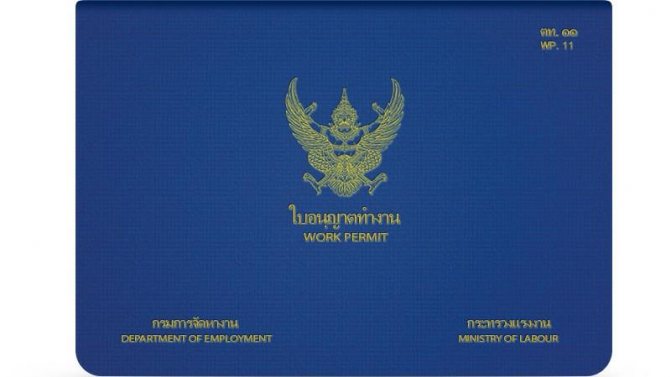
Illegal labor
In Thailand, it is illegal for foreigners to perform the following types of work:
- Driver.
- Worker in the field of agriculture.
- Builder.
- Forester.
- Accountant.
- Auctioneer.
- Salesman.
- Hairdresser.
- Jeweler.
- Architect, designer.
- Lawyer.
- Photographer.
- Guide.
- Secretary.
Employment in the following areas is also illegal:
- Production and distribution of firearms.
- Production of paper, souvenirs and national musical instruments.
- Advertising.
- Hotel and restaurant business.
- Fisheries.
- Mining.
Many freelancers choose Thailand as their downshifting destination. Does this violate Thai labor laws? If a tourist complies with visa rules and does not exceed the period of stay in the country on his visa/status, then he is not considered a violator.
Reference. Freelancing, otherwise known as remote work, is becoming an increasingly popular way to earn extra money and even earn your main income. It allows you to do work remotely via the Internet. Such activities do not violate Thai labor laws.
The remote work he performs is carried out with an employer from another state - it is under this legislation that he falls. If during a vacation a tourist decides to “earn extra money” as a salesman or waiter, he will be held responsible for this in accordance with the legislation of the Kingdom of Thailand.
Fines and punishments for illegal work
Please note that labor migration laws in the country are becoming more and more severe every year:
- The fine for illegal work is 5,000 baht per day of work.
- Employment without a work permit is punishable by five years' imprisonment or a fine of 100,000 baht.
- Foreigners performing activities other than those specified in the work permit are fined 100,000 baht.
- Employers who hire foreign workers illegally pay a fine of 800,000 baht per worker.
Such high fines are aimed at reducing the level of foreigners living in Thailand illegally, as well as stopping the flow of migrants.
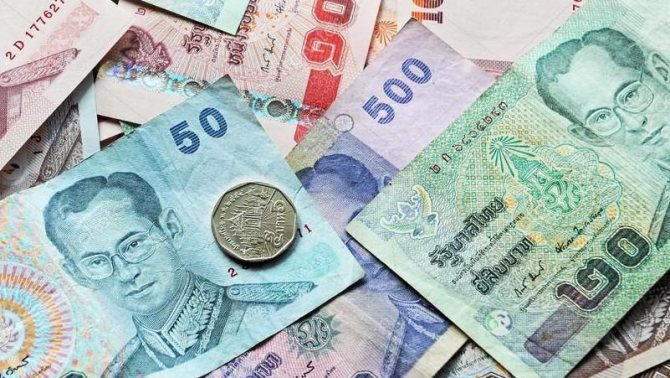
What type of business is prohibited?
In Thailand, there are restrictions not only on foreigners engaging in certain professions. A similar prohibition applies to business activities. This needs to be taken into account in advance. Otherwise, you can simply lose money.
Business in Thailand is closed to Russians in the following areas:
- Agriculture;
- livestock farming;
- fishing;
- transport;
- trade in antiques and art objects;
- woodworking;
- arms trade;
- production and trade in gold, jewelry and musical instruments;
- provision of legal, architectural, engineering services;
- hotel and advertising business;
- wholesale;
- organization of auctions and brokerage services.
As can be seen from the list, not only those types of businesses that provide work for poor peasants, but also the most profitable types of entrepreneurship were banned. However, foreigners can circumvent the ban by introducing a Thai citizen into the management of the company.
What professions can bring success to Russian workers
As mentioned above, the greatest demand in Bangkok is for highly qualified personnel, including scientists. If you are not one of those, then vacancies in 2019 can be found in Bangkok in the following areas:
- Driver of any vehicle (except for pilots of foreign airlines).
- Bricklayer, carpenter and other construction professions.
- Accountant, auditor, cashier (with the exception of these positions in joint ventures).
- Hairdresser, stylist, any work in the beauty industry.
- Lawyer, lawyer, legal consultant (except for cases specified in special legislation).
- Brokerage and brokerage services (excluding international trade).
- Tour guide or tour guide.
- Seller, street vendor.
- Secretary in the office.
In fact, the list may be wider, but amendments to Thai legislation make their own adjustments, so in 2021 the listed professions are quite accessible at your disposal.
Those who are planning to try their hand at modeling in 2019 can make good money. According to the stories of those who have already tried, earnings can reach 40 thousand baht. One of the most promising professions in 2021, which is always in demand, is a language teacher. Here's another reason why it's better to speak languages.
An English teacher at a language school earns around 35 thousand baht.
In Bangkok you can work as a guide, but this profession is usually seasonal, which means you won’t be able to work for a long time. Especially now, in 2021, many are being laid off due to the fact that now fewer tourists from Russia come to the resort in Thailand. A girl can also find a job, for example, she can get a job as a nanny.
The most in-demand professions in 2021
- English teacher;
- programmers in various languages;
- sales managers;
- cooks;
- diving instructors;
- DJs;
- guides;
- realtors;
- hotel administrator;
- excursion organizer;
- fitness instructor;
- animator;
- developers.
IT specialists and salespeople are most valued.
There is no ban on working as a cook, waiter or bartender, just as there is no ban on engineering professions. The only ban on engineering design in construction and engineering surveys. All agriculture is available only to Thai citizens, as are horticulture and fish farming.
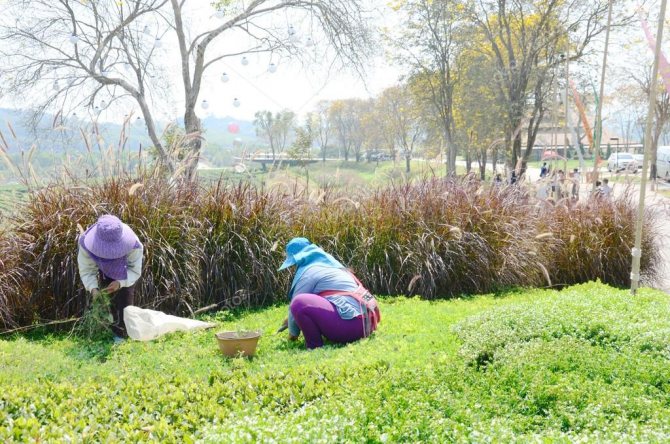
But there remains the possibility of working in this field as a consultant if one is considered a specialist with scientific knowledge and many years of experience in this field. The same restrictions apply to forestry and the timber industry.
Russian specialists can do many things well and would like to work in their field. The next category includes the manufacture of various goods that cannot be produced by foreigners:
- Tailoring of clothes and shoes.
- Carving and cutting of precious stones.
- Wood carving, production of lacquerware.
- Weaving from reed, bamboo, hemp and rattan.
- Making umbrellas, fans and hats.
- Manufacturing of mattresses and blankets.
- Working with natural silk, from the production of threads to sewing clothes.
- Making jewelry from gold, silver and bronze.
- Pottery and pottery.
- Thai national dolls and Thai musical instruments.
- Making cigars.
And the last category includes everything that belongs to religious objects. The image of Buddha, casting or artistic, making bowls for offering food to monks, any religious and national symbols is prohibited for a foreigner.
The first item on the list (Manual work) prohibits any manual work for a visitor.
Internship in the country
It is quite possible to get an internship in this state. However, the list of professions is quite narrow and is limited to the tourism or hotel sector. The internship usually lasts 3 months. A foreigner is provided with free housing, food and a small stipend ($200-300 per month). If the management of the company where the internship took place is satisfied with its results, the foreigner may be offered a job.
- Hotel business. Internships in Thailand are paid mainly by expensive and successful hotels from famous world brands . In addition to invitations, these companies feed students, pay them scholarships (an average of $300 a month), and provide them with decent housing. Then the opportunity arises to find a job directly in this hotel company. After all, the company wants to return the funds spent on training a specialist, plus get a qualified employee. An internship in such hotels is a real chance to legally find a job in Thailand and earn money.
- Medical sector. The kingdom is famous not only for its resorts, but also for innovative medicine. Travelers from all over the world come to Thailand for treatment. Asian medicine attracts both patients and physicians who want a specific experience. In poor regions, states often welcome volunteer doctors who are willing to treat tropical diseases. Doctor is an honorary position in Thailand.
- Also worth noting is the country's mining and manufacturing industries. For example, Thailand has the world's largest suppliers of tungsten and tin. The food and textile industries are actively developing. If a person is a specialist in this field, then he can safely go for an internship.
Useful tips
It’s best not to plan to move to Thailand without a reserve of money. Despite the fact that living expenses here are relatively small and comparable to expenses in a regular regional center of the Russian Federation, finding a job can be very difficult. Therefore, you need a financial “cushion” in case your employment is delayed or you have to move to another city.
There is more work and higher wages in Bangkok. But not everyone likes living there. It is best to look for vacancies in large tourist resorts where there are many foreigners: Phuket, Samui, Pattaya, Krabi.
During the “high” winter season, when many tourists come, prices for everything rise, including apartment rentals. However, the demand for goods and services is also growing. Therefore, for those who are going to come to Thailand for several months, it is better to do it in the fall.
Conclusion
Thailand is one of the most popular winter holiday destinations among Russian tourists. However, not everyone knows that this country can also be of interest for employment. There is work in Thailand for Russians. Of course, you shouldn’t count on high salaries here. But given the low living costs here, local earnings are quite enough. The main advantage of Thailand is not the size of the salary, but the opportunity to live in a tropical climate in a country with a relatively developed infrastructure.





